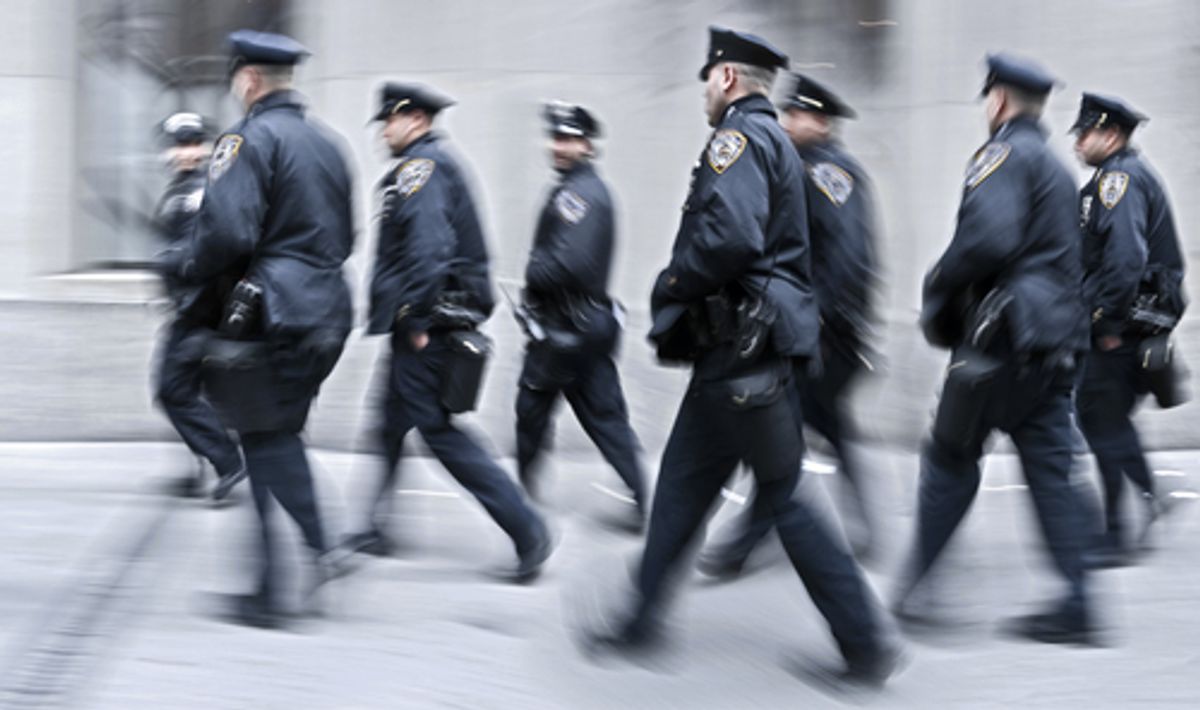On the first day of the landmark federal trial challenging the constitutionality of the NYPD's stop-and-frisk practices, the city's attorneys seemed to set up a catch-22 for proving improper police action. Witnesses who took the stand to speak about feeling persecuted when stopped and searched by New York cops had their credibility challenged for having a stance against stop-and-frisk.
Matt Sledge at HuffPo reported that David Floyd, the lead plaintiff in the case, and Harlem teenager Devin Alomonor both took the stand Monday. Both men have been stopped and frisked by the NYPD. Floyd, a medical student in the Bronx, was stopped twice by police -- once just walking along the sidewalk, once helping a neighbor into their apartment. Sledge noted that the city's lawyer, Morgan Kunz, offered a "preview of the city's courtroom strategy" in her cross-examinations of the two men:
In both cases, the city's cross examination suggested, the witnesses' credibility should be placed in the context of their political commitment to changing stop and frisk.
Almonor was asked about a video he made criticizing the policy. Floyd was questioned by Kunz for his "activism around police issues" and his role in organizing a post-Hurricane Katrina "tribunal" on official misconduct in New Orleans.
"The more times you've told this story, the more reinforced it gets in your mind?" Kunz asked Floyd, later following up with, "Your strong feelings on this issue, have they affected the way you testified?"
Floyd denied that they had. The only thing that had affected his testimony, he said, was the way police treated him.
But the city's apparent angle here -- that witnesses who say they have been illegally stopped can't be trusted because of their politics -- is troubling. It forecloses the possibility that some of the millions of young black and Latino men stopped in recent years by police might have developed anti-stop-and-frisk politics because of their treatment by the NYPD. If prima facie proof of NYPD racist practices has to come from witnesses with neutral politics about police tactics, then no doubt such proof will be hard to find. With hope, U.S. District Judge Shira Scheindlin will not so place the burden of proof in this landmark trial.



Shares